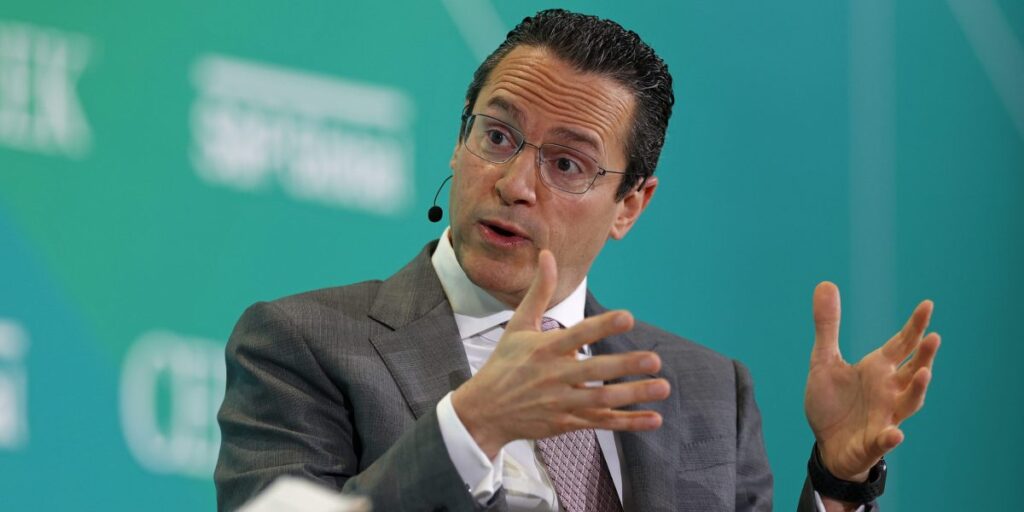
Shell Plc has relaxed its targets to cut carbon emissions over the next decade, while maintaining its ambition to become a net-zero emissions company by 2050.
The change is the latest sign of a wider adjustment in energy transition plans among Britain’s oil majors, which are under pressure from activist investors to focus on their core oil business. Last year, BP Plc said it would produce more oil and gas and have higher emissions this decade than previously planned.
Shell now aims to reduce its net carbon intensity by 15% to 20% by 2030, down from a previous target of 20%, according to its latest energy transition strategy update published on Thursday. The company also abandoned its goal of cutting emissions by 45% by 2035, citing “uncertainty about the pace of change in the energy transition.” These targets are measured against a 2016 emissions baseline.
The change reflects Shell’s move away from supplying renewable energy to homes following the sale of its UK and German businesses. retail last year. Underscoring this shift to its core fuels business, the company has set a new goal of reducing consumer emissions from the use of its petroleum products by 15% to 20% by 2030, compared with 2021 levels.
“Our focus on value has led to a strategic shift in our energy business toward select markets and segments,” CEO Wael Sawan said in a statement. “We expect a slowdown in the growth rate of electricity sales in general. We have updated our net carbon intensity target to reflect this change.”
Shell’s spending on low-carbon energy could also fall in the coming years. The company plans to invest between $10 billion and $15 billion between 2023 and 2025, with $5.6 billion already spent in 2023.
Emissions ambitions
Shell first made public its plan to become a net-zero company in 2020 under then-chief executive Ben van Beurden, just months after BP outlined similar ambitions. At the time, energy prices were in deep slump due to Covid-19 restrictions, prompting some speculation that oil demand had already peaked.
Those forecasts turned out to be unfounded, and a rapid recovery in consumption combined with Russia’s invasion of Ukraine sent oil and gas prices soaring, leading to record profits for fossil fuel producers. Since then, many company shareholders, including BP and Shell, have demanded increasingly higher returns and called for a greater focus on more profitable oil and gas.
Under Sawan, who succeeded Van Beurden last year, Shell has vowed to focus “ruthlessly” on improving returns for investors. The company is also seeking to close the valuation gap with U.S. peers Exxon Mobil Corp. and Chevron Corp., which continue to focus more on oil and gas.
Meanwhile, environmental groups have condemned what they see as an erosion of the industry’s commitments to combat climate change.
“With this refusal, Shell is betting on the failure of the Paris climate agreement, which calls for cutting emissions by nearly half this decade,” Mark van Baal, founder of shareholder activist group Follow This, said in an emailed statement. “Only Shell shareholders can change the board’s mind by voting in favor of our climate resolution at the shareholders meeting in May.”
Van Baal along with 27 investors, including Amundi SA, filed a resolution at Shell’s annual general meeting, calling on the company to rejoin the Paris climate agreement.


